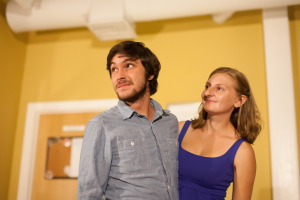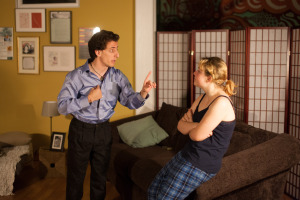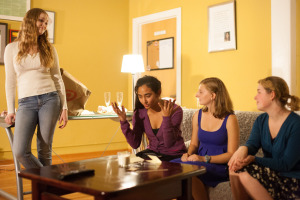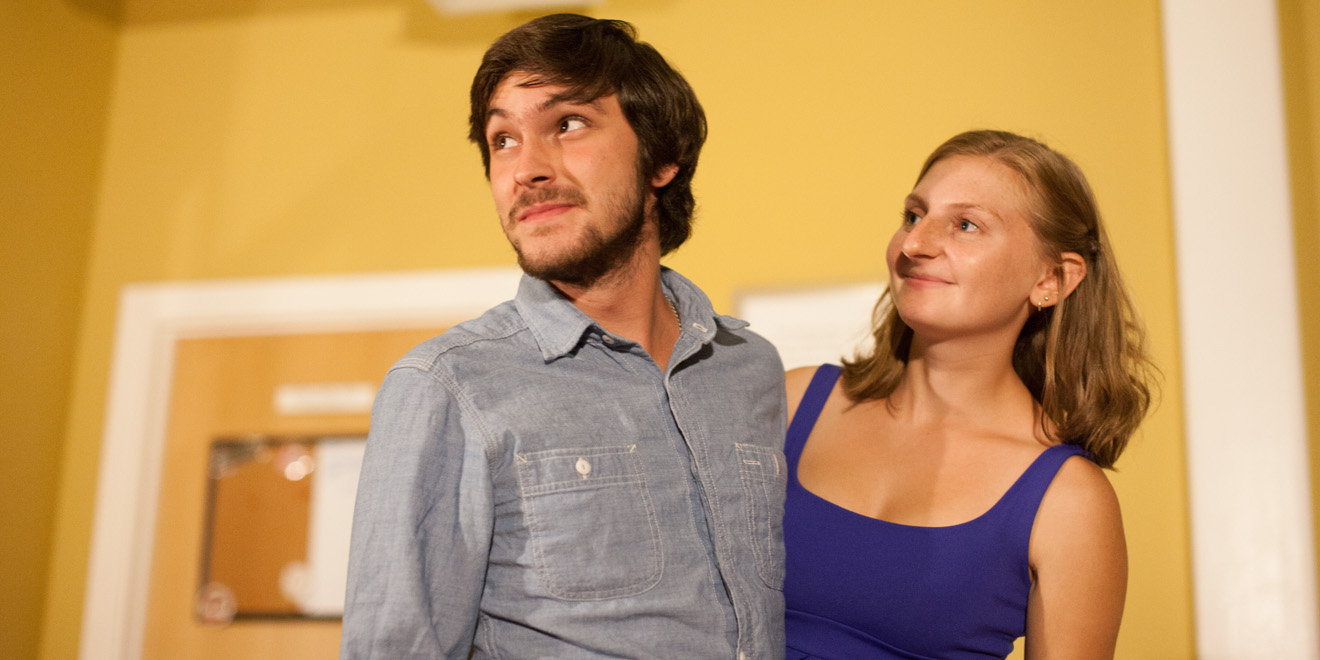
“Though Stanford was named the most LGBTQ-friendly school in the country by the Princeton Review, there is a notable lack of conversation surrounding ‘questioning’ as a [sexual orientation or sexual] identity and [about] the spectrum of sexuality,” says Julia Starr in the playwright’s note in the program, discussing the timeliness of her new play “The Long Way Around,” directed by Leanna Keyes and presented at the Women’s Community Center this past weekend.
“The Long Way Around” addresses the complexities of love, sexuality and identity with the story of Addie (Madeline Bixler) — who escapes her suburban life and an unfulfilling relationship with Bill (Brandon Silberstein) to explore her identity — and her long-time friend Luce (Sarah Tollman) who is likewise trapped by suburbia and a loveless relationship with Nathan (Sean Morris), a (presumably) closeted gay man. Addie and Luce eventually find solace in each other, rekindling their suppressed and complex feelings for one another with an ending that is satisfying but does not have a clear denouement, leaving room for discussion about the multifaceted and ambiguous nature of sexuality and identity.

The play is a bold and original new work with well-crafted characters and poetic, evocative language, which particularly shines during Addie’s soliloquies. Starr fluidly tackles the potential challenges of combining so many dissonant characters and storylines by grounding them around the relationship between Addie and Luce, whose scenes adeptly portray the fragility of human contact and the tenuousness of relationships. Carefully crafted moments of connection between Addie and Luce combined with humorous one-liners allow Starr to tackle weighty and complex themes with buoyancy.
As Addie, Madeline Bixler is compelling, delivering intimate addresses to the audience with a clear understanding of Starr’s poetic language. As Bill, Ben Silberstein delivers a dynamic performance, sincerely conveying his desire to have a “normal” family like those “from the Kraft commercials” while later spewing drunken rants with skilled comedic timing.

The play is not performed on a stage; rather, the set was built to fit into the Women’s Community Center, with actors entering through its front entrance and using its couches, blurring the line between the performers and the audience. Keyes does an excellent job navigating the intimate Women’s Community Center, using it to immerse the audience into the world of the play and to showcase subtle nuances of human behavior that would be lost on a larger stage. The space is just right for a play that focuses on subtle, human moments, and a well-designed soundscape illuminates these nuances without being intrusive.
Contact Steve Rathje at srathje ‘at’ stanford.edu.
This post originally referred to the actor who played Bill as Ben Silberstein — his name is actually Brandon Siblerstein. The Daily regrets this error.
